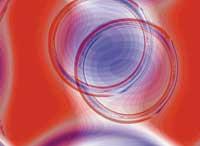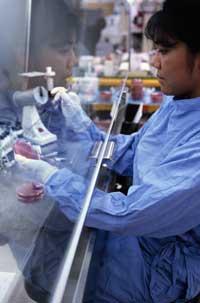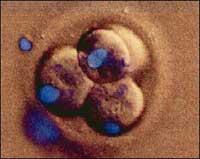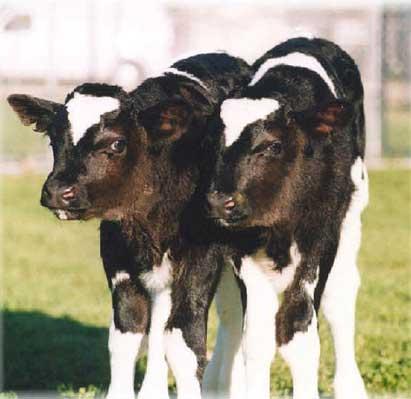Transplantation of cloned bovine tissue without rejection
2002/07/01 Elhuyar Zientzia Iturria: Elhuyar aldizkaria
One of the great advantages of cloning is that they will be bespoke transplants, and in this sense, the American Advanced Cell Technology (ACT) laboratory, Harvard Medical School, and Boston Children's Hospital announce a major breakthrough. The cow tissues obtained by cloning have been raised in laboratory and converted into hearts, bones and kidneys. To do this, they have allowed the cloned embryo to grow for 5-6 weeks in the belly of a cow so that organ tissues were formed, then extracted and finished the process in laboratory. This is how the miniorgans have achieved. Then it has been transplanted to the donor cow, that is, to the 'original clone', one of those kidneys. Through the journal According to the researchers, the news is very important because they have shown that transplants that do not generate rejection can be performed. In fact, with the usual transplants there is always the risk of rejection, since they are the organ of another and the genetic information of another, but if the organ grows from the genetic material itself, that is, by cloning, it is easier to overcome the problem of rejection. However, from cow to man there are biological and legal aspects. By law, human embryos cannot grow more than 14 days in vitro and one hundred of the most mature cannot be extracted. Therefore, human organs should develop from cells in the laboratory and not from embryonic tissues as they have with cows.
|

Gai honi buruzko eduki gehiago
Elhuyarrek garatutako teknologia




 Nature Biotechnology it has been announced that the transplanted kidney has been able to perform various functions and there have been no rejections.
Nature Biotechnology it has been announced that the transplanted kidney has been able to perform various functions and there have been no rejections. 

